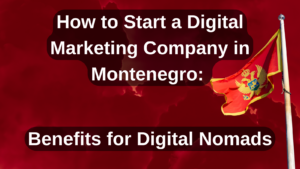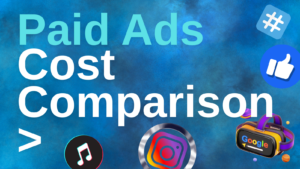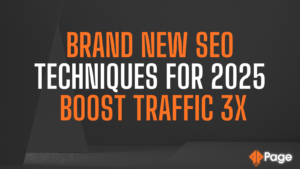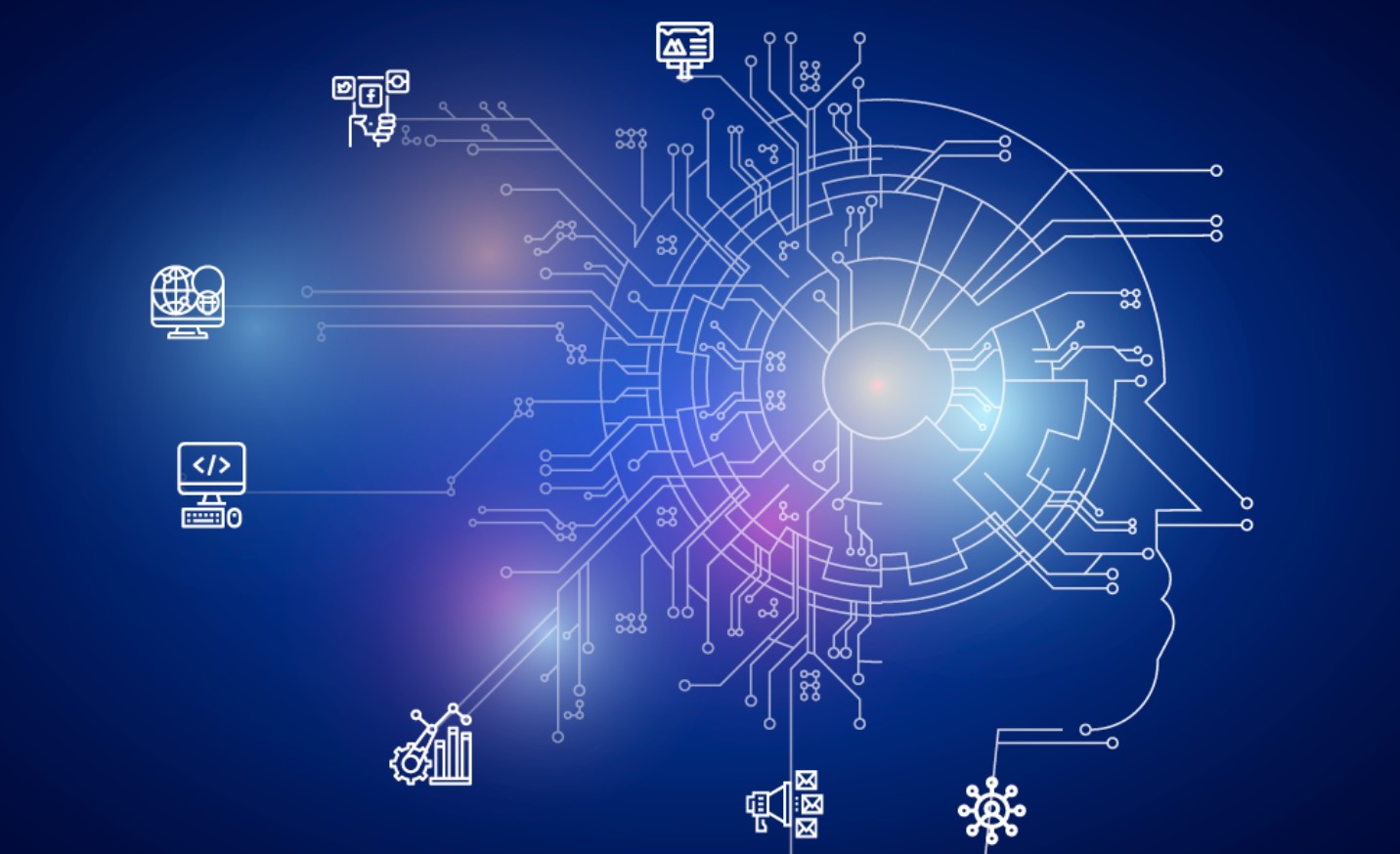A monumental shift in how brands connect with their audiences, the use of AI for smarter, more effective digital marketing campaigns stands out. Artificial Intelligence (AI) has transcended the bounds of science fiction to become a cornerstone of modern digital marketing strategies, offering unparalleled insights, automation, and personalization capabilities. This comprehensive exploration delves into the transformative power of AI in digital marketing, highlighting key tools, strategies, and real-world applications that are reshaping the marketing landscape.
AI’s Role in Redefining Digital Marketing
Artificial Intelligence stands as a beacon of innovation in the realm of digital marketing, ushering in a new era where data-driven decisions and automated processes redefine the boundaries of what is possible. Through the application of machine learning algorithms, natural language processing (NLP), and predictive analytics, AI transcends traditional marketing methodologies, offering a dynamic and responsive approach to engaging with audiences. These technologies enable the seamless integration of complex data analysis and behavioral prediction into marketing strategies, allowing businesses to navigate the digital landscape with greater precision and insight. The automation of intricate tasks, coupled with the optimization of marketing campaigns, facilitates a more efficient allocation of resources, ensuring that marketers can focus on creative and strategic initiatives. As AI continues to evolve, its capacity to interpret vast datasets and generate actionable insights in real-time is transforming the marketing industry, setting a new standard for how brands interact with their consumers.
Personalization at Scale
The advent of AI in digital marketing has heralded a transformative shift towards hyper-personalization, a strategy that leverages deep data insights to deliver bespoke content to consumers. Unlike traditional segmentation methods, AI-driven personalization examines individual user interactions, preferences, and behaviors, enabling marketers to craft messages that resonate on a personal level. This granular approach to personalization not only enhances the relevance of marketing communications but also fosters a deeper connection between brands and their audiences. As AI algorithms sift through data to identify unique consumer patterns, they unlock the potential for creating highly targeted and meaningful content, elevating the user experience to unprecedented heights. The impact of this tailored engagement is profound, driving significant uplifts in user engagement, loyalty, and conversion rates. In an increasingly competitive digital environment, the ability to personalize at scale offers a compelling competitive advantage, ensuring that brands can stand out by delivering value that is both recognized and appreciated by their customers.
Predictive Analytics and Consumer Insights
The integration of AI-driven predictive analytics into digital marketing strategies is revolutionizing the way businesses approach consumer engagement and campaign planning. By harnessing the power of historical data analysis and trend identification, these advanced tools offer a glimpse into future consumer behaviors, enabling a level of foresight previously unattainable. This profound capability allows marketers to not only anticipate consumer needs but also to align product offerings and marketing messages with upcoming trends, ensuring that campaigns are not just reactive but proactively tailored to meet the evolving demands of the market.
The strategic implications of predictive analytics extend beyond mere anticipation of needs. They empower marketers to refine their inventory management, ensuring that supply aligns with predicted demand, thereby reducing waste and maximizing efficiency. Furthermore, the ability to segment audiences based on predicted behaviors enables the creation of highly targeted campaigns. These campaigns resonate on a deeper level with consumers, as they are based on a sophisticated understanding of future actions rather than past behaviors alone. This forward-looking approach fosters a more dynamic and responsive marketing strategy, one that adapts to the consumer journey and enhances the relevance of marketing efforts in real-time.
Routine Task Automation through AI
The advent of AI in the marketing domain has heralded a new era of efficiency and effectiveness, particularly in the automation of routine tasks. AI technologies, including chatbots and virtual assistants, are redefining customer service and engagement paradigms by offering 24/7 assistance and support. These AI-powered solutions can manage a wide array of inquiries, from basic questions to more complex requests, ensuring that customer interactions are handled promptly and accurately. This level of automation not only enhances the customer experience by providing instant support but also allows businesses to reallocate their human resources towards more complex and strategic initiatives.
AI’s role in automating tasks such as email marketing and social media management has transformed these channels into highly efficient and personalized communication platforms. AI algorithms can analyze user engagement and behaviors to optimize the timing and content of communications, ensuring that messages are both relevant and timely. This personalization extends to content creation and distribution, where AI tools can identify the most effective channels and formats for reaching specific audience segments. By automating these routine tasks, AI frees marketers to focus on creative and strategic aspects of their campaigns, fostering an environment where innovation and personalization thrive.
Creative Boosts in Content Creation with AI
The realm of content creation has been profoundly transformed by the advent of AI, with tools like OpenAI’s GPT-4 leading the charge. This advanced technology has the ability to generate text that mirrors human writing styles, opening up unprecedented opportunities for content marketing. AI-powered content generation tools are not just about efficiency; they offer a depth of creativity and insight that can rival traditional methods. They are capable of crafting compelling narratives, insightful reports, and engaging articles that resonate with audiences. The implications for content marketing are vast, as these tools can adapt to different tones, styles, and formats to suit specific audience preferences or brand voices.
The integration of AI in content creation democratizes high-quality content production, making it accessible to companies of all sizes. Small businesses, in particular, can benefit from the ability to generate content that engages their target audience without the need for extensive resources. Furthermore, these AI tools are continually learning and evolving, which means they are constantly improving in their ability to produce relevant and engaging material. This continuous improvement cycle ensures that the content not only meets but often exceeds the quality expectations of both marketers and their audiences, setting a new standard for what is possible in content marketing.
Transformative AI Tools in Digital Marketing
The landscape of digital marketing is witnessing a revolution, powered by a suite of AI tools that are redefining the way marketers approach strategy and implementation. These tools span a broad spectrum of applications, from Google’s AI algorithms that enhance search engine optimization to sophisticated programmatic advertising platforms that streamline the ad buying process. The impact of these AI technologies is profound, offering marketers the ability to fine-tune their strategies with unprecedented precision and efficiency.
Platforms like ChatGPT by OpenAI exemplify the potential of AI to revolutionize content interaction, creation, and customer service. ChatGPT, in particular, stands out for its versatility, enabling marketers to craft content that engages users in natural and meaningful ways, automate customer service responses to enhance user experience, and even drive engagement through personalized communication. This level of interaction was once the domain of human customer service agents and content creators, but AI now brings these capabilities to scale, transforming the digital marketing landscape.
The integration of AI tools into digital marketing workflows allows for real-time data analysis and decision-making, enabling marketers to respond to market trends and consumer behaviors with agility. This real-time capability ensures that marketing strategies remain relevant and effective, maximizing ROI and driving business growth. As these AI technologies continue to evolve, they promise to unlock even greater potential for innovation in digital marketing, heralding a future where AI-driven strategies lead to unparalleled engagement and success.
ChatGPT and OpenAI’s Ecosystem
ChatGPT, developed by OpenAI, represents a groundbreaking advancement in the application of artificial intelligence within the digital marketing sphere. As a tool capable of producing content that spans a wide array of formats and styles, ChatGPT has dramatically altered the content creation landscape. Its ability to generate informative articles, engaging blog posts, and even creative fiction on demand underscores the versatility and adaptability of AI in capturing and retaining audience interest across various platforms.
Beyond text generation, ChatGPT’s prowess extends to conversational agents, where it can simulate human-like interactions, providing customer support, guiding users through websites, and engaging potential clients in meaningful dialogues. This capability not only enhances user experience but also builds a more personal connection between brands and their audiences, fostering loyalty and trust.
The innovation doesn’t stop with ChatGPT. OpenAI’s broader ecosystem, including DALL-E for groundbreaking image creation and Codex for advanced programming, showcases the expansive potential of AI in transforming digital marketing strategies. DALL-E, for instance, allows marketers to create bespoke visuals that resonate with their content, adding a layer of creativity and engagement that was previously hard to achieve at scale. Meanwhile, Codex offers solutions to automate and streamline coding tasks, enabling the creation of more sophisticated and interactive digital experiences for users. Together, these tools equip marketers with unparalleled capabilities to innovate, personalize, and enhance their digital campaigns, setting new benchmarks for what can be achieved in digital marketing through AI.
AI-Driven Marketplaces and Backlink Strategies Unveiled
The influence of AI in digital marketing reaches into the specialized domain of SEO and backlink strategies, offering novel solutions that redefine how marketers enhance their online presence. AI-driven marketplaces for expired domains present a unique opportunity for marketers to harness the latent power of established domains. These platforms use AI to sift through vast databases of expired domains, evaluating their potential SEO value based on factors like domain age, existing backlinks, and historical authority. By identifying and acquiring these domains, marketers can significantly shortcut the time-consuming process of building domain authority from scratch, giving their content an immediate boost in search engine visibility.
Backlink Gateway exemplifies another innovative application of AI in digital marketing, focusing on the critical area of backlink acquisition. This service leverages AI to identify opportunities for securing high-quality backlinks, a fundamental component of SEO success. By automating the identification and acquisition process, Backlink Gateway enables marketers to enhance their site’s authority and improve search engine rankings with efficiency and precision. The ability to access a curated selection of backlink opportunities tailored to a website’s specific needs and niche not only streamlines SEO efforts but also ensures that the backlinks acquired are of the highest relevance and quality. This strategic application of AI in backlink acquisition underscores the transformative potential of AI in elevating SEO strategies, making it an indispensable tool for digital marketers aiming to dominate search engine rankings.
Strategies for AI Integration in Digital Marketing
Integrating AI into digital marketing strategies unfolds a realm of possibilities, enabling businesses to harness data-driven insights and automate complex processes with unprecedented efficiency. The initial step involves a comprehensive analysis to pinpoint precisely where AI can deliver transformative impacts, such as enhancing data analysis capabilities, refining customer segmentation for hyper-personalized marketing efforts, or elevating content creation to new heights of relevance and engagement. This strategic identification not only sets the stage for a successful integration but also aligns AI applications with overarching business goals, ensuring that every implementation drives value.
Diving into experimentation with AI-powered tools offers a hands-on understanding of how these technologies can reshape marketing operations. Whether it’s leveraging machine learning algorithms to uncover hidden consumer trends or employing natural language processing tools to craft compelling content, each experiment sheds light on the practical benefits and potential hurdles of AI adoption. This phase is critical for calibrating AI initiatives to the unique needs and capacities of the business.
Staying abreast of the latest developments in AI technology is another crucial strategy. The field of AI is dynamic, with new advancements and tools emerging at a rapid pace. Marketers who dedicate themselves to ongoing education and adaptability are better positioned to capitalize on innovative AI applications before they become mainstream, securing a competitive advantage in the digital landscape. Ethical considerations and best practices should guide this continuous learning journey, ensuring that AI integration not only advances marketing objectives but does so with integrity and respect for consumer privacy.
Overcoming Challenges in AI Adoption
The journey to integrate AI into digital marketing is not without its challenges, yet these obstacles offer opportunities for growth and innovation. Data privacy stands as a significant concern, with consumers increasingly wary of how their information is collected and used. Marketers must navigate these concerns with utmost care, implementing AI solutions that prioritize data security and adhere to regulatory standards. Transparency in AI-driven practices reassures consumers and builds trust, turning a potential hurdle into a cornerstone of ethical marketing.
Addressing the ethical implications of AI extends beyond data privacy to include considerations of bias, accountability, and impact. Deploying AI tools that are transparent, fair, and accountable ensures that digital marketing practices enhance consumer experiences without compromising ethical standards. This commitment to ethical AI use requires a continuous dialogue among stakeholders, alongside the implementation of checks and balances to monitor and guide AI applications.
The successful adoption of AI in digital marketing also hinges on the availability of skilled professionals who can navigate the complexities of AI technology. Building or enhancing the workforce’s AI literacy is essential, necessitating investments in training and development. This not only equips teams with the necessary skills to leverage AI effectively but also fosters a culture of innovation and curiosity.
In overcoming these challenges, businesses not only unlock the full potential of AI in transforming their digital marketing efforts but also set a benchmark for responsible and impactful use of technology. Through a combination of strategic integration, ethical consideration, and skill development, AI can be harnessed as a powerful ally in the quest for digital marketing excellence, driving forward innovations that resonate with consumers and differentiate brands in the crowded digital arena.
Putting It All Together
AI’s role in digital marketing is not just transformative; it’s foundational to the future of how brands interact with their audiences. By harnessing the power of AI for personalization, predictive analytics, automation, and content creation, marketers can launch smarter, more effective campaigns that resonate deeply with their target customers. As AI technologies continue to evolve, the potential for innovation in digital marketing is boundless, promising a future where AI-driven strategies lead to unparalleled engagement and success.





